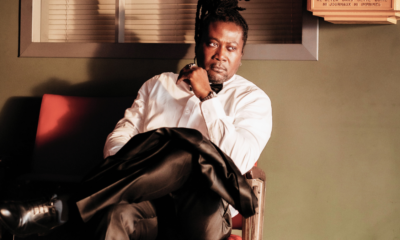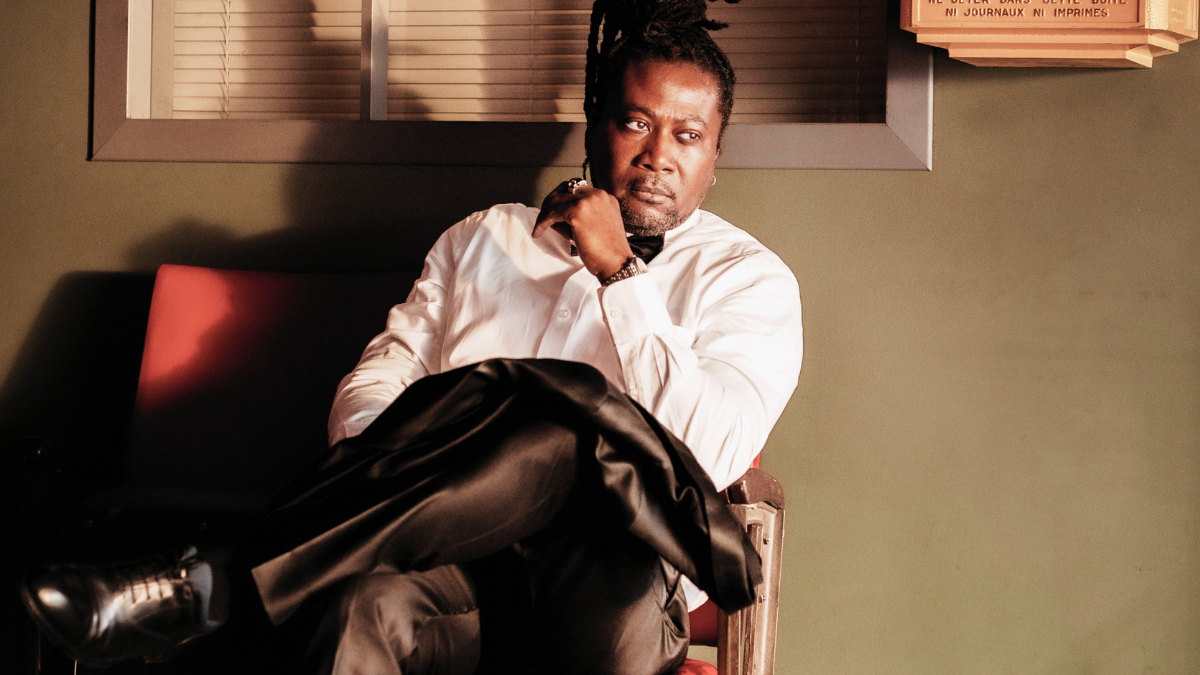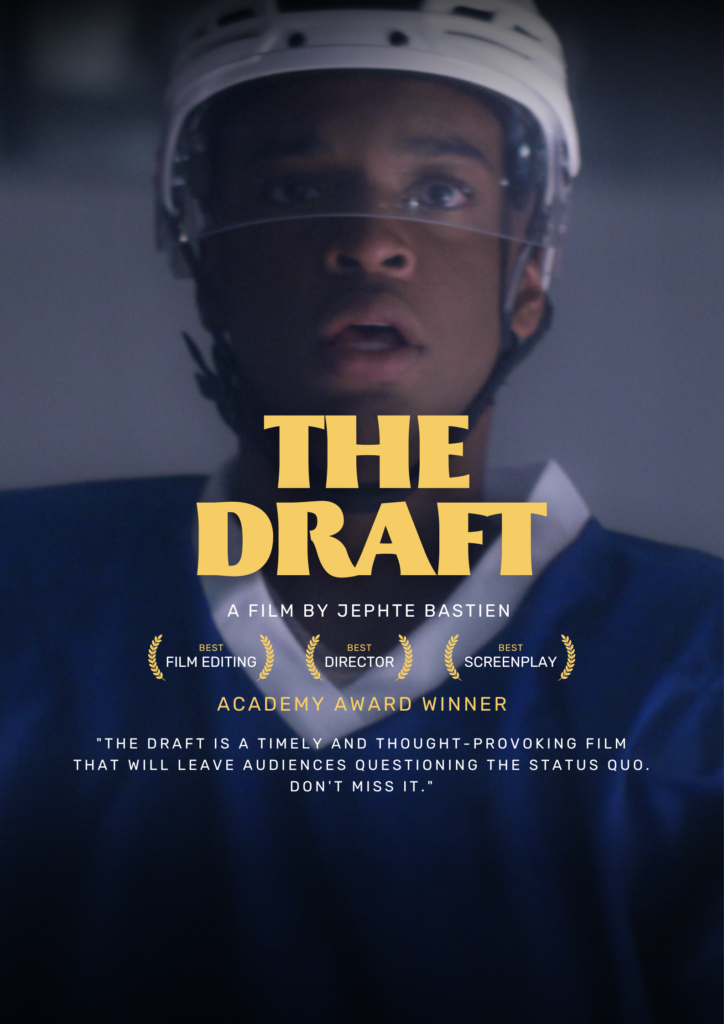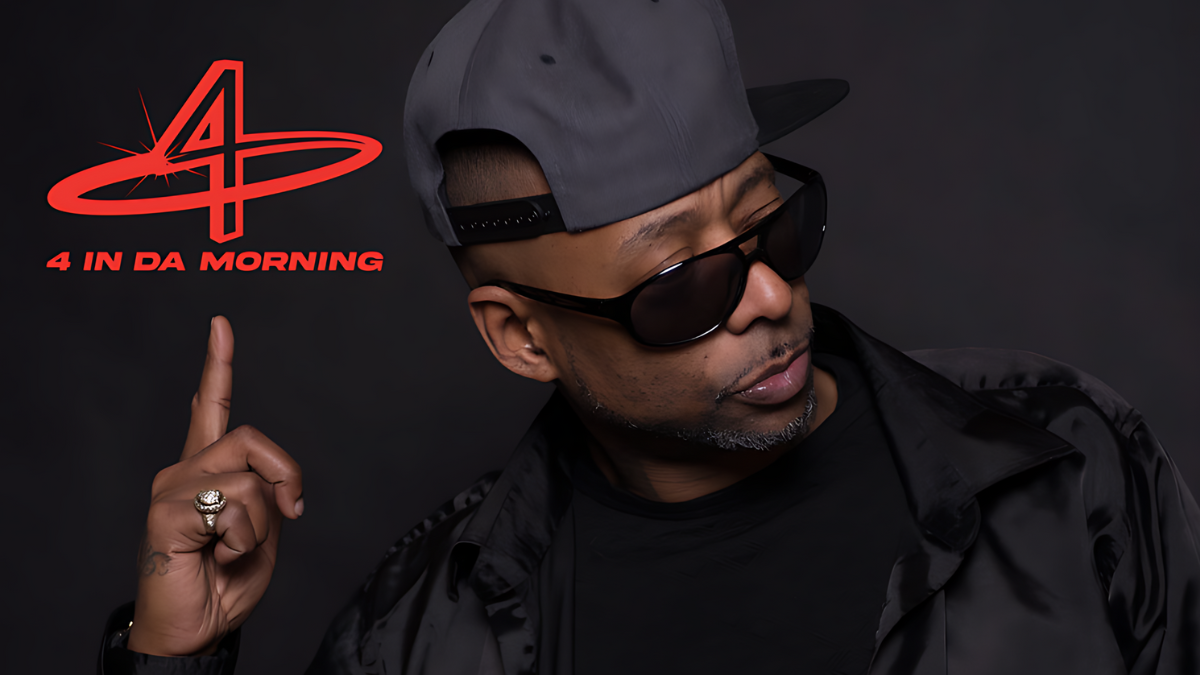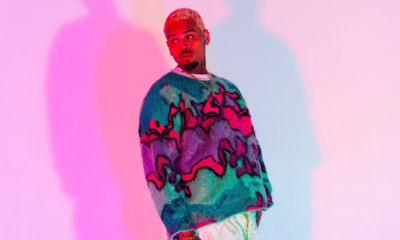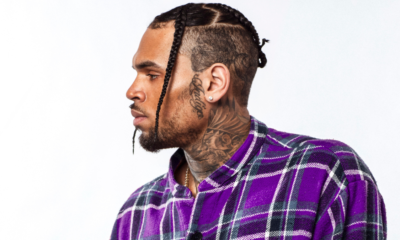Admittedly, the topic of the interview seemed a bit unnatural at first, maybe even a bit unlikely. In the lobby of the studio, about a dozen hopeful girls were waiting to audition. By the end of the day, two of them would be chosen as back-up singers for Corneille’s upcoming European tour. Their excitement filled the air and seeped through the walls into the room where Corneille sat answering my questions. Their voices were like a backdrop hum. They were there wanting to be part of his voice.
Even while talking, his words come out quietly and smoothly. He thinks before he answers. He takes his time. His answers are quiet, thoughtful, like the lyrics to his songs. Corneille can talk about his voice, and we are happy to oblige.
TVM: When did you know you were going to be a singer?
When I was pretty young, I discovered – well I wouldn’t really call it a discovery. My passion for singing it was just there. It’s been confirmed ever since I was maybe 11, 12 years old. I just loved to sing, any record that I would hear I would try to sing it out pretty much.
TVM: And which records really moved you?
I think I really loved to sing when I discovered Stevie Wonder, and Boys II Men – a little later obviously – that’s how I learned to love to sing…
TVM: So what do you consider to be your musical backgrond?
Well it’s very diverse, I was naturally drawn to soul and R&B and black American music. But then, I was brought up in an environment where we listened to a lot of pop, a lot of classical musical, a lot of jazz and gospel, we listened to pretty much everything. (pauses for awhile) Yeah, everything that’s soulful, and soulful is not a genre in itself, it’s just an approach to making music and singing.
TVM: And what genre of music do you like to sing?
I don’t really have a style. I think I’m a song writer period. Before I belong to any style of music, or any musical genre, I write songs.
TVM: What moves you to write songs?
I use songs as a therapy, for one, and to express things that I stand firmly on.
TVM: Such as?…
Um, well… such as hope. Hope, generally speaking, that’s way top underrated and we can never get enough of it. Love, in general – not in its specific form but love for one another, and just very positive values. That’s all I’m about and that’s what I’ll always be writing about.
TVM: So you are going on tour now?
Yeah I just came out of an almost two-month tour and I’m going on another three-month tour. I’m working on an album for a buddy of mine, his name is Gage. Actually he had a short learning experience with Jennifer Meade back then and he’s a great vocalist too. We’re cutting his album now.
TVM: What is a typical practice like for you?
I just vocalize in my mid-range so I don’t force it [voice] too much, depends if I had a full day of performing, doing promo, or doing interviews and I have to sing the same night, I can allow myself to vocalize in the higher ranges or in the lower ranges because my voice is already trained for the day. But if I had a day of just pure rest of pretty much sleeping on the bus all day and just got at the venue, I’ll take a good 30-40 minutes to just warming up mostly in the mid-range.
TVM: What vocal advice would you give to an upcoming artist?
Practice. And just vocalize. And try and understand what a vocal coach is saying, because it does seem abstract in the beginning, it almost doesn’t make any sense, it’s like learning any instrument, at first when you start to learn the guitar, everything seems useless to you, because you’re not catching the practical side of it right away, you have to go through every step of the learning experience which is crucial. You have to accept in and go with it. And just trust that it will evolve into some actual singing.
TVM: So you do think that artists should be vocally trained?
Well, I mean it all depends. I think my way of singing is from the heart and from the soul and it’s something that you never learn. And any vocal teacher would tell you that you sing as well as you connect with your inner self, and your emotions. That’s your best resource. You have to go deep into yourself and find emotions that help you ‘vocal out’ what you feel – I don’t know if that term exists. But more than all that it’s a muscle and you have to take care of it, you have to train it and warm up before a performance. I found out throughout the years that the best condition before you sing is not whether you drink a glass of milk, or taking pills to relax your vocal chords or any of that. The best thing is warm-up.
TVM: How would you describe your own voice?
(Pauses) Umm, well the first time Jennifer [Meade] heard me she had compared my vocals to a flute, so I guess I’ll just stick to what the teacher says (laughs softly). Just because it has a lot of harmonics and because there’s very little about it that is nasal, I don’t have a nasal tone at all, and it’s like any wind instrument, it’s very breathy. I have a very soft way of doing vibratos which is very characteristic of a flute. You don’t hear every step of a flute vibrato distinctly as it goes through, that’s why I would compare it to a flute.
TVM: So you mentioned that the glass of milk beforehand is not as important, but is there anything special you do in terms of alimentation?
Well I actually try not to touch the dairy products. I try to be consistent on water when I’m on tour, which one should be anyways. But that’s about it, I don’t have any specific nutritional regime that goes along with singing.
TVM: Ok, so-
Oh! Yeah, I try not to sleep to late though (laughs)
TVM: So you have certain amount of hours?..
Yeah, yeah I got to have my 8 hours of sleep yes. (smiling)
TVM: And when you sing what techniques can be heard coming through?
Well I think throughout the years I learned to really understand what my voice was. And mostly understand what my limitations were and what my strength was. And that goes with range. I mean as a vocalist you really have to grasp your range and understand where you sound the best. And evolve and take anything else and any evolution you want to touch, you want to take it on those bases. You want to know where you are at your best. As a male vocalist, I have relatively high-pitched voice. I would say I’m closer to an alto than I am to just a straight up baritone. I used falsetto just when needed. I use it when needed and I learned to selectively choose where I need to use my skills, like using vocal gymnastics. I just sound the best. I used to do it systematically at the end of a rehearsal (starts to belt out sounds) you know, you’re into it. But I learned from the best that you don’t have to do it at all the time and actually the least you do it the better it’s appreciated. So I’m really into making sure you’re singing from the heart. As far as technique, I try not to intellectualize my singing too much because it then sort of messes it up.
TVM: You mean intellectualize your sound?
Yeah, I mean my vocals, my singing. I mean it’s necessary when you’re learning the basics of singing, but once you’ve been doing it for awhile, as long as you’re not hurting your instrument, that’s the main thing. I think at first you just catch your rhythm and your singing habits and recording is the best way to show you when you’re at your best and where you sound so-so and once you touch that I think you can go places.
TVM: And where do you think that you sound better?
Um… I sound better in my natural mid-range tone, where I’m the most comfortable. And every once in awhile I can go lower than expected or use my falsetto just to expend my spectrum a little bit and make it a little bit more diverse and that’s where I’m at. But I learned that to be a good singer you don’t have to have the most powerful vibrato in the world so I’m not very keen on vibrato. So I use them when needed and they’re very subtle. And I’m not a powerhouse singer. I mean that’s not what I’m into either ,although I can appreciate it when it’s well done, most definitely appreciated it, but that’s not my thing. I think I’m more… (pauses) I get attracted by timbers and tones more than I get attracted by techniques. And those are two things that unfortunately you can maybe discover and maybe put in the forefront of whatever you’re doing vocally but you can’t really learn them from scratch.
TVM: How has your life changed as an artist?
Umm… I think as you become more and more successful, I think, in my case anyways, whatever you do comes with a responsibility. Whatever move you make, if so you choose anyways, because some people don’t give a shit, excuse my language, but some people are just careless. But you have to understand that once you’re in a spot you have a certain responsibility and you have to understand that there is a certain amount of people that look up to you and you have to take that into consideration – you somehow feel watched all the time, which is good because it keeps you on your toes, but you have to learn to balance it out with just some regular living. So, that’s what it is.
TVM: How has earning a degree in communications affected you?
Well, it may have made my speech just a little politically oriented, just a little bit, because you know academics. Everything is put into little boxes, and you tend to intellectualize every notion and everything has its sort of political reason of being, maybe it sort of raised my political conscience. I mean the academic, and that level of education makes you aware of certain things within a certain political perspective.
TVM: But as an artist too?
Yeah, as an artist definitely – the responsibility. I mean you understand better just the power of media and the relationship that people have in our days with media. You understand it better and it’s important to put it in a political context, then you understand that if you have a public that you can call your own and people that buy your records and come to your shows, you then understand what the real power of media is. And then you have to choose how you’re going to use it. Just because you know the impact that you can have on people.
TVM: Ok, so you will hopefully be reaching people through this interview, what final advice would you impart on those wanting to vocalize?
(Pauses) I think maybe the best thing – maybe two things – the first and least original is ‘less is more’ I guess (smiles and chuckles softly). Definitely less is more. The other one is to be comfortable with who you are. I mean that vocally and generally speaking too but in this particular case, vocally. Be comfortable with your limitations and with what you can’t do. Even though there are people that you look up to, that you would like to sound like, understand that the most unique characteristic that you can add up to your voice is who you are, and not what somebody else sounds like. So you have to be comfortable. It’s tough, ‘cause we all grew up trying to sound like somebody, right? I mean if you grow up and are aiming at pop, you think of Mariah Carey and Celine Dion and you think of Whitney Houston, ‘cause those are the references. If you’re a guy and do soul and R&B you’re thinking Stevie Wonder and Marvin Gaye… I mean you have those references but it’s important to just start from who we are and take little things from who we look up to and be comfortable with it. I guess I feel that that’s the best way to evolve.

 Business3 years ago
Business3 years ago
 Business2 years ago
Business2 years ago
 Business2 years ago
Business2 years ago
 Business3 years ago
Business3 years ago
 Business3 years ago
Business3 years ago
 Business3 years ago
Business3 years ago
 Business3 years ago
Business3 years ago
 Business3 years ago
Business3 years ago

